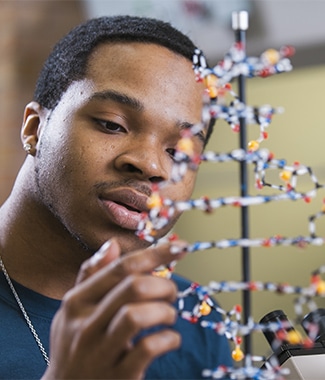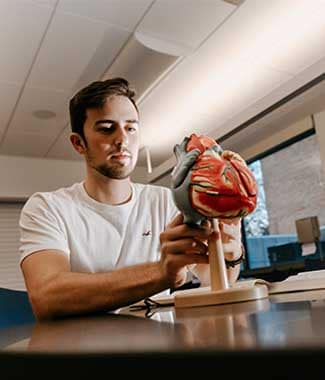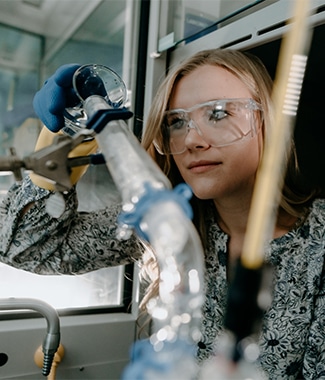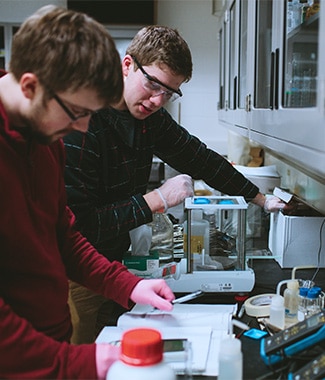

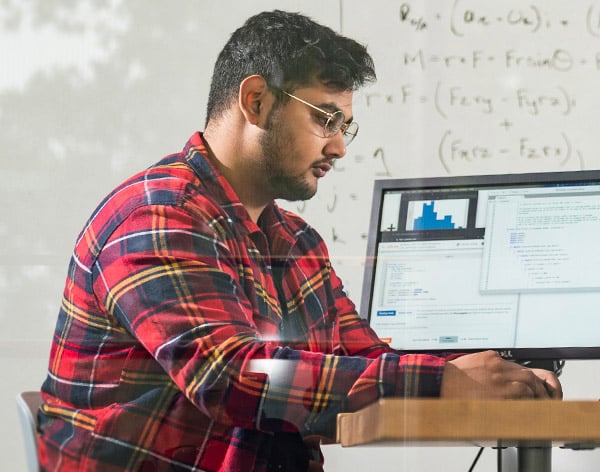
Bachelor of Science in
Engineering
On-Campus
REQUEST INFORMATION
Loading...
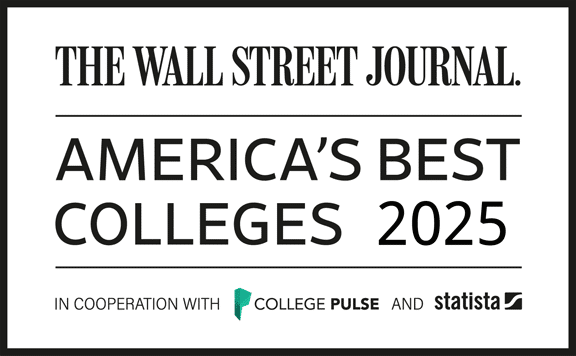
Transfer Friendly
Transfer up to 75% of your program credits
Transfer up to 75% of your program credits
Build the Future with an Engineering Bachelor’s Degree
Cornerstone University’s Bachelor of Science in Engineering equips you with a strong foundation in technical expertise, problem-solving and leadership. You can specialize in high-growth fields with engineering concentrations in Mechanical, Data Science, Design & Innovation, Environmental and Engineering Management. Grounded in a Christian worldview, our industry-experienced faculty will prepare you to innovate, design, and manage engineering solutions in a rapidly evolving world.
Develop Market-Ready Skills with an Engineering Bachelor's Degree
Cultivate in-demand professional skills through Cornerstone’s engineering curriculum. Concentrations are available in Mechanical Engineering, Data Science Engineering, Design & Innovation Engineering, Environmental Engineering and Engineering Management.
Analytical Thinking & Problem-Solving – Apply mathematical and scientific principles to solve complex engineering challenges.

Systems & Process Optimization – Design and refine processes for efficiency and effectiveness across industries.
Technical Proficiency – Master industry-standard tools, software, and methodologies for engineering applications.
Innovation & Creativity – Develop forward-thinking solutions for real-world engineering.
Mechanical Engineering – Design and optimize mechanical systems, materials and manufacturing processes.

Data Science Engineering – Apply AI, machine learning and big data analytics to solutions.

Design & Innovation Engineering – Develop user-centered products and integrate emerging technologies.

Environmental Engineering – Implement responsible solutions for environmental protection and resource management from the lens of a Christian worldview.

Engineering Management – Lead engineering projects, optimize operations and drive strategic decision-making.
Leadership & Decision-Making – Lead with confidence, integrity, and responsible practices while applying Christian principles to improve lives through engineering.
Courses
Cornerstone is ready to help you excel in your chosen field. The courses below reflect just a few of the general education and industry-focused courses you will experience to achieve your degree.
Featured Courses
EGR-112: Applied Programming for Engineers
Learn structured and modular programming and applied practical skills in writing, testing, debugging, and validating programs for engineering applications.
EGR-209: Mechanics and Machines
Explore forces, equilibrium, stress analysis, and machine elements, equipping students with foundational principles for mechanical design and engineering structures.
EGR-220: Measurement & Data Analysis
Provides hands-on experience with engineering tests, data acquisition tools, statistical analysis, and technical writing through lab reports.
EGR-226: Introduction to Digital Systems
Understand the analysis and design of digital systems, including Boolean algebra, logic circuits, computer architecture, machine language, and microcontroller programming.
View all of the courses for your academic program.
General Education
A Christian Worldview of Liberal Arts and the G.O.O.D. Life
The humanities are integral to Cornerstone’s liberal arts approach, exploring culture, literature, history, and philosophy through a Christian worldview. Developed by our renowned Christian worldview scholars, students consider how to apply G.O.O.D. Life Biblical principles to inspire their spiritual growth and to profoundly influence society, industry and ministry for Jesus Christ. Our G.O.O.D. Life foundations guide students to answer life’s biggest questions from a rich Biblical perspective to shape Christ-centered moral leaders.
- God: Who is God? What is His beauty, goodness and greatness?
- Others: What does it mean to live in a community with responsibility and grace?
- Ourselves: Who am I? What is the beauty and frailty of being human?
- Dual Citizenship: What is my role as a citizen of heaven and earth?
- Life: How do we live, know, and love the good life, valuing truth, beauty, and goodness?
Engineering Concentrations
Customize your program with a concentration as you engage in extensive course offerings and hands-on training with top-tier engineering educational technology in our on-campus Engineering Lab. Students must select an engineering concentration.
Data Science EngineeringDesign & Innovation EngineeringEngineering ManagementEnvironmental EngineeringMechanical Engineering
Data Science Engineering
Data Science Engineering Concentration
Students prepare to analyze data, develop machine learning models and optimize engineering solutions. Graduates apply AI, big data, and predictive analytics to solve real-world challenges. Courses may include:
- CSC-131: Programming Fundamentals – Introduces computer science and software engineering, covering problem-solving, algorithms, structured design, and programming in a high-level language.
- CSC-216: Database Management Systems – Learn the analysis, design, and implementation of databases, focused on the relational model, data modeling, query languages, and database security.
- GCIS-335: Data Mining – Explores computational techniques for discovering useful information in large datasets, focusing on clustering, classification, and hands-on use of data mining software.
- EGR-336: Project Management – Examine factors in successfully managing projects of various sizes, including planning, scheduling, budgeting, resource allocation, and team leadership.
- EGR-367: Manufacturing Processes – Explore fundamental production methods for metals, plastics, ceramics, and composites, emphasizing design economics, practical manufacturability, computer-aided manufacturing, and quality control.
- EGR-368: Manufacturing Processes Lab – Investigates the interactions between design, processing conditions, and materials on product quality, emphasizing the scientific method, design of experiments (DOE), and statistical analysis.
Design & Innovation Engineering
Design & Innovation Engineering Concentration
Apply design thinking and engineering to create new products and improve existing ones to drive innovation across industries. Courses may include:
- CRI-202: Creativity in the Conceptual Age – Develop essential human abilities — design, storytelling, systems thinking, empathy, play, and meaning — for modern success.
- CRI-205: Strategies in Innovative Thought & Design – Develop Creative Problem Solving (CPS), Design Thinking (DT), and Human-Centered Design (HCD) applications to lead these techniques in real-world situations.
- EGR-301: Analytical Tools for Product Design – Examine analytic methods for product development, including customer requirements, concept generation, feasibility analysis, prototyping, and project planning.
- CRI-312: Science of Human Innovation – Learn the psychology, neuroscience, and sociology behind creativity, examining the contexts and networks that drive innovative thinking.
- EGR-336: Project Management – Explore key factors to complete projects of various sizes, covering project selection, scope, scheduling, budgeting, resource management, and team leadership.
- EGR-367: Manufacturing Processes – Apply fundamental production methods for metals, plastics, ceramics, and composites, emphasizing practical design economics, computer-aided manufacturing, and quality control.
Engineering Management
Engineering Management Concentration
Combines engineering principles with business strategy to manage projects, optimize operations and lead technical teams. Study project management, systems engineering, financial analysis, and supply chain management to drive innovation and efficiency. Courses may include:
- ACC-221 and ACC-222: Accounting 1 & 2 – Provides a foundation in financial and managerial accounting, covering the accounting cycle, asset and liability valuation, payroll, financial reporting, cash flow, cost accounting, and financial statement analysis.
- MGT-231: Principles of Management – Discover the four key management functions — planning, organizing, leading, and controlling — while exploring the integration of faith and business in personal and corporate settings.
- ECN-232: Principles of Microeconomics – Learn microeconomic theory, covering consumer behavior, product demand, cost and supply, production, market structures and pricing factors.
- EGR-336: Project Management – Examine key aspects of successfully managing projects, including selection, planning, scheduling, budgeting, resource allocation and team leadership.
- EGR-367: Manufacturing Processes – Explore production methods for metals, plastics, ceramics, and composites, emphasizing design economics, manufacturability, computer-aided manufacturing, and quality control.
- EGR-440: Production Models – Introduces analytic and simulation models for modern production strategies, focusing on lean manufacturing, workstations, inventories, flow lines, Kanban, CONWIP, and cellular manufacturing.
Environmental Engineering
Environmental Engineering Concentration
Learn to apply engineering and scientific principles to protect human and environmental health, emphasizing water, air, waste, energy, and environmental impact management. Courses may include:
- BIO-151: General Biology – A foundational study and lab focused on cell biology, chemistry, genetics and microbiology.
- ECO-241: Environmental Science – Explores the interaction of ecology, economics, sociology, and policy in addressing environmental issues, including air and water quality, energy, waste, and sustainability.
- EGR-336: Project Management – Learn key factors in completing projects of all sizes, covering selection, planning, scheduling, budgeting, resource management, and team leadership.
- ECO-341: Ecology – Examines the interrelationships between organisms and their environments, with a special focus on Michigan ecosystems and human impact.
- ECO-342: Field Biology – Experience field research techniques, exploring diverse Michigan ecosystems through site visits and independent research options.
- EGR-437: Environmental Engineering – Understand the impact of human development on air, land, and water resources, emphasizing environmental laws, regulations, and engineering design practices.
Mechanical Engineering
Mechanical Engineering Concentration
Students prepare to design, analyze, and optimize mechanical systems through hands-on learning in thermodynamics, fluid mechanics, materials science and machine design. Courses may include:
- EGR-301: Analytical Tools for Product Design – Teaches structured design processes, integrating customer requirements, concept development, feasibility analysis, prototyping, and project planning.
- EGR-336: Project Management – Explores key principles of project planning, execution, and leadership, covering scope, scheduling, budgeting, and team coordination.
- EGR-350: Vibration – Examine mechanical vibrations in structures and engineering components, covering free and forced vibration, modal analysis, numerical methods, and vibration control.
- EGR-365: Fluids – Provides a foundation in fluid mechanics, covering fluid statics, flow analysis, Bernoulli’s equation, turbulence, boundary layers, turbomachinery, and open channel flow.
- EGR-367: Manufacturing Processes – Learn production methods for metals, plastics, ceramics, and composites, emphasizing design economics, computer-aided manufacturing, and quality control.
- EGR-368: Manufacturing Processes Lab – Explore the interaction of design, materials, and processing conditions on product quality, emphasizing experimental methods, design of experiments (DOE), and statistical analysis.
Influential Careers with a Bachelor of Science in Engineering Degree
- Process Engineer
- Design Engineer
- Data Engineer
- Manufacturing Engineer
- Environmental Engineer
- Mechanical Engineer
- Engineering Supply Chain
- Engineering Project Management
- Systems Engineer
- Industrial Engineer
Tuition
On-Campus
$22,000 per year
Generous scholarship and payment options available.
Review information about student fees and housing packages on our Tuition & Fees page.
Your Degree Starts Here
Start your degree at one of the most affordable Christian universities in the region. An admissions counselor is ready to help you begin the enrollment process.
- Apply — our application is free.
- Set goals — your admissions counselor is here to guide you.
- Maximize your credits — you could transfer in up to 75% of your degree credits.
- Discover affordability — scholarships and grants are available for qualified students.
Related Programs
Cornerstone University
Contact
- P:
- 616.949.5300
Hours
MON - FRI: 8 a.m. - 5 p.m.
SAT & SUN: Closed







